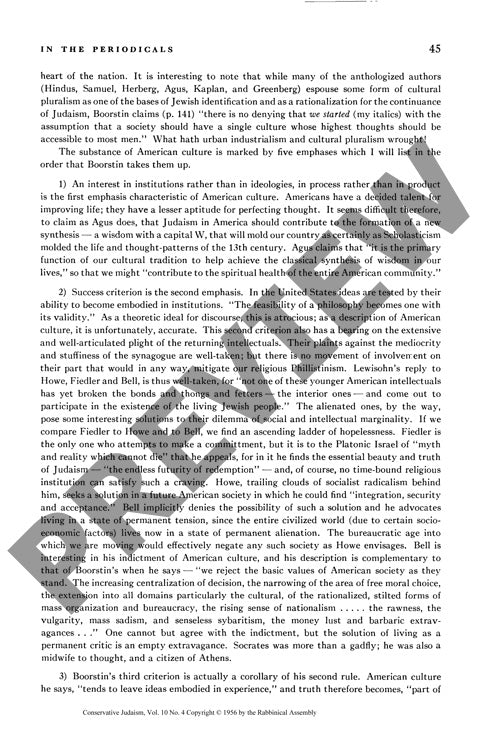In the Periodicals
Couldn't load pickup availability
American Jewish intellectuals returning from traditional yeshiva study often experience profound alienation when confronting the pragmatic, success-oriented culture of American synagogues - a tension that reveals deeper conflicts between Jewish and American approaches to religious identity. Through comparative analysis of influential Jewish thinkers including Hindus, Samuel, Herberg, Agus, Kaplan, and Greenberg, evaluated against Boorstin's five-criterion framework of American culture, distinct patterns emerge in how Jewish communities navigate competing intellectual traditions. While American culture prioritizes institutional effectiveness over ideological purity and validates ideas through practical success rather than theoretical rigor, traditional Jewish scholarship emphasizes precise theological and legal reasoning. This methodological analysis reveals how American empiricism's focus on institutional growth has particularly validated Conservative Judaism's approach to religious evolution, even as it challenges traditional modes of Jewish intellectual discourse. Though cultural pluralism provides theoretical justification for Jewish continuity in America, the fundamental mismatch between Jewish scholarly traditions and American cultural characteristics creates persistent challenges for authentic Jewish identity formation. These findings illuminate broader questions about how minority religious communities maintain distinctive intellectual traditions within dominant secular cultures.

More Information
-
Physical Description
-
Publication Information
Published 1956
ISBN
-
Publication Credits
David Silverman

